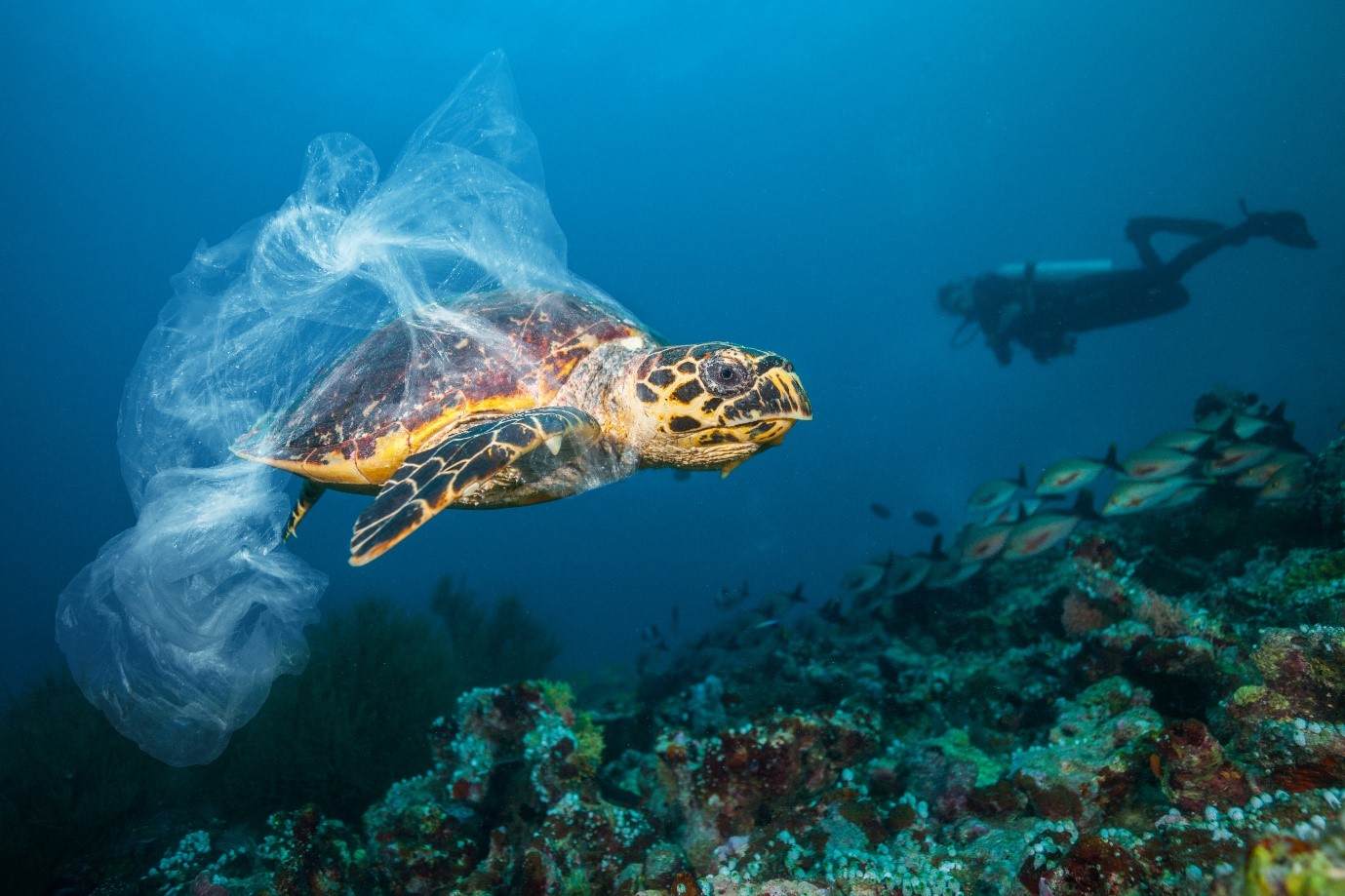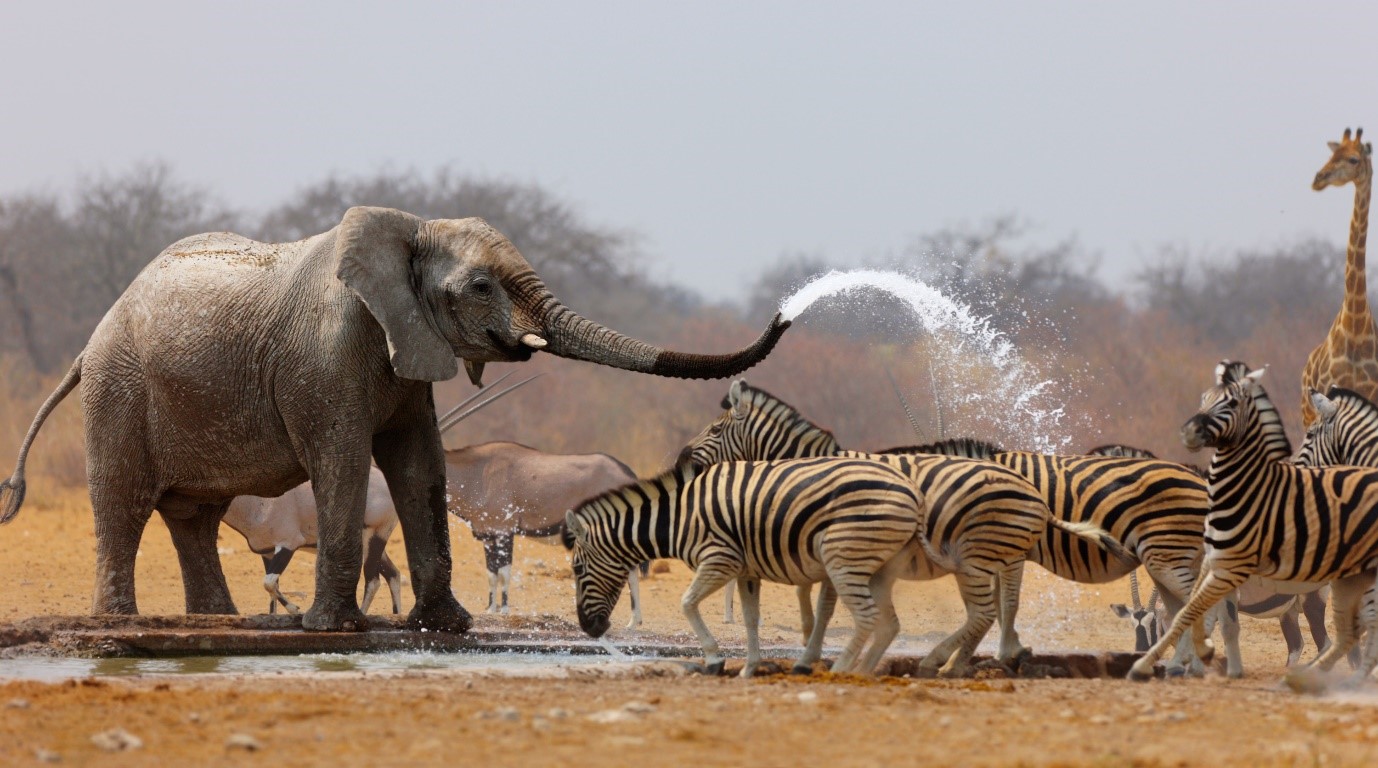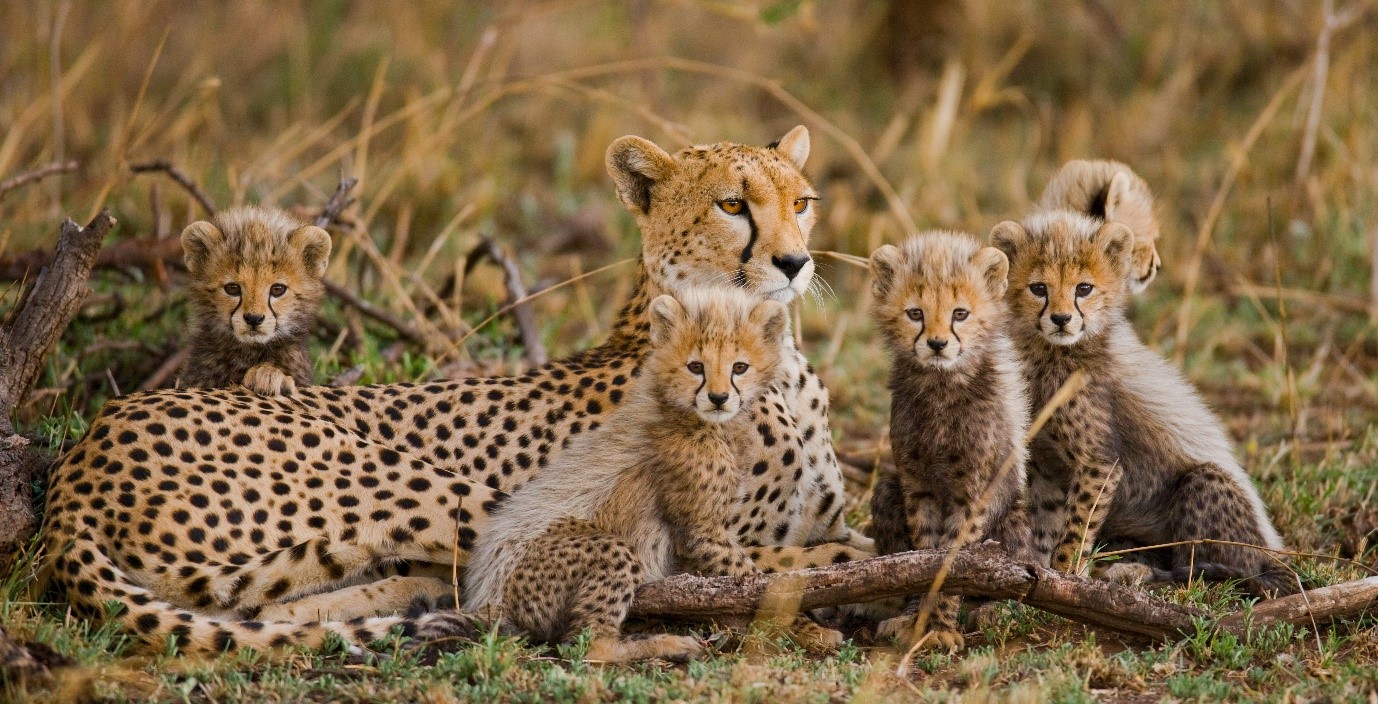Working in animal conservation is increasingly important as our world struggles with the effects of climate change and population growth. It’s also an exciting time to join conservation efforts as many innovative solutions are being found to combat the challenges we face.
Animal and wildlife conservation is a huge area taking in many different species, locations, and projects. To give you a flavour of what animal conservationists do on a day-to-day basis we have selected two areas to give you more details on:
- Marine conservation
- African wildlife conservation
Marine Conservation
Scuba divers look at marine life for conservation

About 70% of the Earth’s surface is made up of water and around 97% of that can be found in the oceans, yet it remains the most unexplored habitat on our planet. New species are being discovered all the time and we are learning more about the species we know about through the dedicated observations of marine biologists. Conserving this precious habitat has never been more important.
The effects of plastic on marine wildlife are well known and heart breaking. According to the International Union for Conservation of Nature:
“Plastic pollution is the most widespread problem affecting the marine environment. It also threatens ocean health, food safety and quality, human health, coastal tourism, and contributes to climate change.” (IUCN 2017)
Thankfully there are projects around the world working to tackle this problem.
Marine Conservation Project Example
Conservation projects often welcome volunteers. The Marine Conservation Practical Course in the Red Sea in Egypt provides 2-weeks of practical training where you will dive underwater and discover the various coral reefs and marine life.
Your work here will include:
- Going on daily dives to clear the reefs of fishing gear, debris, and plastics.
- Working with the local community to educate them on environmental issues and the importance of taking care of our marine habitats.
- Collaborating with local fishermen to reduce the amount of ‘ghost gear’ in the ocean.
- Weighing and documenting the collected debris.
- Processing the collected refuse to be recycled or returned to the fishermen.
Although projects like this often don’t require previous diving experience from their volunteers, they do need you to be fit and healthy and usually aged 18 or over. Volunteering in these kinds of roles will give you an opportunity to learn about the complex marine ecosystem and play a vital, practical role in protecting it.
Marine conservation courses
If you are passionate about conserving our marine wildlife, then you may be interested in the following courses:
Sea turtle caught in plastic ocean rescue

This short course looks in more detail at the effects of micro and macro plastics on the Earth's Oceans and what we can do to minimise the threat of plastic pollution on marine environments.
This short course explores the environmental impact of pollution and fishing on marine ecosystems. It also looks at the impact that climate change has on the oceans.
African Wildlife Conservation

The wildlife of Africa is iconic and majestic. It remains a top tourist destination in large part due to the abundance and beauty of its wildlife. But the beautiful animals of the African continent are under threat from a variety of sources including:
- Poaching
- Habitat loss
- Human wildlife conflict
Conservation work in this area can be complex – considering the often-conflicting needs of both the local communities and the wildlife that surrounds them. Conservation efforts can face challenges such as working in areas where armed conflict is a threat and where the pressing need for conservation is often not prioritised. There is clearly a huge need for people to work in conservation in these areas to protect these species and habitats and to ensure that the local populations (both animal and human) thrive.
African wildlife conservation project example
National Parks: Biodiversity, Conservation and Tourism. The Kenya Wildlife Service (KWS) conserves and manages Kenya’s wildlife. They manage parks and reserves, undertake conservation research and combat wildlife crime. KWS promotes education and takes on both local and international interns and volunteers.
Your work with them may include:
- Biodiversity research and monitoring
- Identification and monitoring of indicator species
- Wildlife corridors
- Protected area management
- Environmental impact assessment
You must be prepared for tough, physical outdoor work when working in conservation. Good observation skills are important along with good communication skills as much of the work involves educating others about the aims of conservation.
African wildlife courses

To help equip you for work in this sector we have a range of courses available including:
This short course looks at the major crises affecting African wildlife and the conservation efforts that are helping to tackle them.
This short course consists of two units focussing on ‘Conflict between Humans and Wildlife’ and ‘Communities and Wildlife’. The course looks particularly at examples from Elephants, Wolves, Primates and Big Cats.
This diploma provides an ideal route into a professional career working with both wildlife and conservation. The course consists of six units looking at:
- Ecological Crises and African Wildlife Ecology
- African Big Cats
- Alternative African Predators
- Herbivores of Africa
- African Primates
- African Birds
How to start a career in wildlife conservation?
Having a passion for wildlife and a desire to help in the efforts to protect them are an excellent start. If you don’t have any experience of working in this sector, then choosing somewhere to volunteer is a good step towards achieving your dream job.
Volunteer Role Description
Many charities and conservation organisations rely on the work of their volunteers. As long as you are physically fit, there are usually no age restrictions. Employers tend to look for a combination of relevant training and hands-on experience. Through volunteering, you will acquire many new skills that will help you when applying for jobs or course placements. Whatever your skills or the amount of time you have available to offer, many animals will benefit greatly from your offer of volunteering.

Once you have the relevant experience and qualifications you can start to apply for jobs. The role of a conservation assistant can be a good entry into the profession.
Conservation Assistant job description
The role of a conservation assistant will vary depending on the organisation, but the role will often involve elements of the following:
- Monitor and analyse data collection and write up research papers when required.
- Organise the logistics of the research projects when in the field, including equipment and resource management.
- Supervise volunteers and assist in their training volunteers.

Jobs within conservation are popular and competition can be high. Applicants are expected to be able to demonstrate knowledge and enthusiasm for the issues. Once you have gained experience and training within the sector there is scope for specialisation in your chosen area of interest and opportunities to further your training. It is worth bearing in mind that the more senior positions are usually more office based and focus on things like planning, budgeting, and people management.
Wherever you are in your journey to work within animal conservation, rest assured that you are making a positive impact on the world!

Animal Courses Direct is one of the UK’s largest online training providers of Ofqual regulated Qualifications for Professionals in the Animal Care Sector. We also offer an animal job board where qualified applicants can apply for roles in animal care, wildlife, and conservation.
All our courses are designed to enhance career and employment prospects in the animal and wildlife sectors around the world.
Alternatively, you can contact us directly to speak to a student career advisor by calling 0120 200 640.
Also, if you adore animals, you can keep track of all upcoming animal awareness days and events with our FREE calendar! Download it here.
















